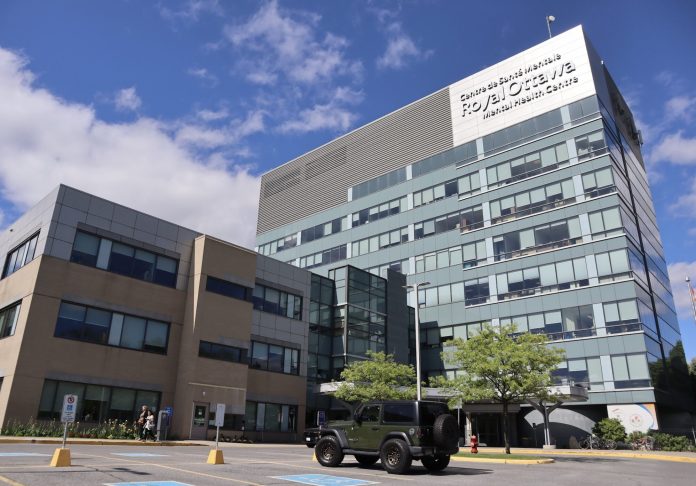A University of Ottawa scientist is working with The Royal Ottawa Hospital to uncover the neurological impact of minority stress.
Minority stress includes traumatic experiences based on belonging to a stigmatized or marginalized group or identity.
Excess stress, such as discrimination, violence, hate crimes, microaggressions, or “everyday injustices,” as Dr. Andrew Nicholson calls them, lead to negative mental health outcomes in both sexual and gender minorities.
“That is what our study is focusing on,” Nicholson says.
Nicholson’s previous study, The Neural Correlates of Minority Stress: Uncovering Systemic Oppression Related to the Intersectionality with Neuro imaging and Machine Learning, published in 2022, “uncovered a big controversy in the field,” he said, as previous neuroimaging studies did not take minority stress into account when comparing heterosexual and homosexual brains.
“They attributed all group differences to the neurobiological basis of sexual orientation,” said Nicholson.
Minorities experience distal and proximal stress, according to a 1995 study published in the U.S. National Library of Medicine.
Distal stress processes are external, including experiences with rejection, prejudice, and discrimination. Proximal stress is internal, and often the result of distal stress.
Together, distal and proximal stressors accrue, leading to chronically high levels of stress that cause poor health outcomes.

Gay men who experience distal stressors related to their sexual orientation, such as bullying, have an increased tendency to ruminate, which is associated with increased depressive and anxious symptoms compared to gay men who did not experience distal stressors, the 1995 study states.
Several studies show LGBTQ2S+ people have a higher prevalence of suicide and substance abuse. A 1996 study found that BIPOC (Black, Indigenous, and People of Colour) Americans suffer from higher rates of hypertension than other populations.
Ella Bawagan, clinical research coordinator with the Mosaic study, said systemic barriers minorities face — such as non-inclusive health services — lead to health and social inequities.
“Minority groups demonstrate unique social determinants of health that are not always effectively addressed through the current health interventions or services that we are providing,” said Bawagan. “On the other side, in research, we see minority groups have not been included or well represented. This has resulted in findings that are harmful to minority groups.”
A trained social worker, Bawagan is the main point of contact for the study and walks participants through the process, something Bawagan refers to as “a big ask.”
After a telephone interview, participants take part in a clinical assessment, where Bawagan asks about their mental health. From there, a moral injury script is developed and used when the subject enters the FMRI.
“It requires participants to think of a time where they experienced a moral transgression as it relates to their minority status,” said Bawagan. “These memories often evoke emotions such as guilt, shame, or betrayal.”
Following a debrief, Bawagan offers participants support.
“This is especially important in the FMRI component,” she said. “In the past, this has involved giving the participants the opportunity to tour the scanner at the brain imaging centre before going in, bringing a loved one in with them for support, or simply sitting with them in the winter garden at The Royal after the scan to help ground them.”
While the study hopes to uncover the negative neurological impacts of minority stress, Nicholson said the team is also looking for proof of resiliency in the oppressed.
“From a neurobiological perspective, are there any biomarkers that may indicate that someone may have increased risk or show resiliency for certain mental health outcomes? That is what we are really trying to uncover.”
As a second generation Filipina, Bawagan is incredibly proud of her minority status.
“I believe it is something that not only makes me unique but it is also something that makes me strong. My community and cultural identity heal me, and it keeps me grounded. I really think it is rooted in self-acceptance,” shared Bawagan. “Although our research may focus on the negative aspects of minority stress, we also look at how minority groups exhibit protective factors such as resilience, self-acceptance, and finding community.”
To participate in the study contact ella.bawagan@theroyal.ca
